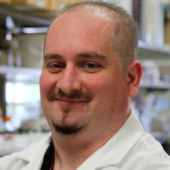
Peter M. Fisher / Getty Images
THIS ARTICLE IS MORE THAN FIVE YEARS OLD
This article is more than five years old. Autism research — and science in general — is constantly evolving, so older articles may contain information or theories that have been reevaluated since their original publication date.

I was about to book a trip to Berlin for a neuroscience meeting when I heard the news: President Donald Trump had issued an executive order barring citizens from seven countries from entering the United States. I have lived in the U.S. for more than seven years and I have a green card. But I have dual citizenship in France and Syria, one of the blocked countries.
It took me a while to realize the true impact of the order, issued 27 January. At first, my thoughts were on the Berlin meeting, called BRAIN 2017. It was an important opportunity to present my work on a stem cell model of stroke. I hoped feedback from the meeting would help me to publish in a high-impact journal and secure a grant. I was excited to represent my institution, Texas Tech University in Amarillo, Texas, and my country, the U.S. But if I went to the meeting, I wouldn’t be allowed back home.
As the weekend unfolded, I realized the order affected much more than my conference plans. Some researchers had been traveling when the order was issued and were barred from re-entering the country. Students arriving on visas were turned away.
The travel ban has been temporarily halted. But if reinstated, it stands to uproot the lives of many researchers and slow scientific progress not just in the U.S., but around the world.
Science powerhouse:
The U.S. has long excelled in science. It is home to more than 350 Nobel Prize winners since 1901 — the most of any country. But our scientific standing is thanks in large part to immigrants. About 40 percent of the nation’s Nobel Prize winners since 2000 were born abroad.
The U.S. has been a “candle in the dark” for scientists seeking refuge, to quote the late astrophysicist Carl Sagan. Franklin D. Roosevelt welcomed Albert Einstein, who was fleeing persecution from Nazi Germany. Barack Obama embraced Refaai Hamo, who was escaping the Assad regime in Syria.
President Trump has already threatened America’s scientific legacy with his ‘alternative facts.’ Closing the country’s doors to immigrant and refugee scientists will only tarnish the country’s long tradition of inclusiveness, as well as its status as a scientific leader.
The U.S. hosts meetings for several scientific societies. The Society for Neuroscience annual meeting, for instance, draws more than 30,000 attendees from 80 countries. A large community of Iranian neuroscientists hosts its own social event at the meeting each year. Trump’s order would block this group from the 2017 meeting, scheduled for November in Washington, D.C.
These international meetings are crucial. They allow us to share our data with peers, and forge new projects and collaborations. They extend networking opportunities to scientists at every stage of their careers: Students seek out inspiring mentors, principal investigators look for skillful postdoctoral fellows, and early-career scientists connect with peers and prospective recruiters for academic faculty positions.
Blue-collar Syrian:
These meetings contribute to the diversity seen in most labs across the country. One of these meetings allowed me to live the American dream.
I’m the son of a Syrian metal worker who migrated to Europe as a teenager in search of a better life for himself and his eight orphaned brothers. When I was in the last year of my doctoral studies at the University of Zurich in Switzerland, I dreamed of landing a postdoctoral position in the U.S. In 2008, I attended a Gordon Research Conference in Tilton, New Hampshire, and presented my work on the design of a 3D model of the blood-brain barrier. I won a poster award and attracted the attention of some senior scientists, one of whom became my postdoctoral mentor.
My story may seem incredible, but it’s not unique. Immigrant scientists work extremely hard to make it in the U.S., and many of them have made significant contributions. For instance, my fellow Syrian Huda Akil, distinguished university professor of neuroscience at the University of Michigan, served as president of the Society for Neuroscience in 2002 and 2003.
The travel ban stands to block brilliant scientists from working in the U.S. It would also block me from visiting my family in Europe, and my parents from visiting me.
Although the fate of the ban is unclear, Texas Tech University has suspended international work travel for faculty from the seven affected countries and strongly discourages its faculty, staff and students from traveling abroad for personal reasons.
I sincerely hope the ban is remembered as an unfortunate blip in our country’s history. Science thrives through collaborations across cultures and borders. Any attempt to restrict that cooperation could harm science for generations to come.
Abraham Al-Ahmad is assistant professor of pharmaceutical science at Texas Tech University in Amarillo, Texas.
By joining the discussion, you agree to our privacy policy.